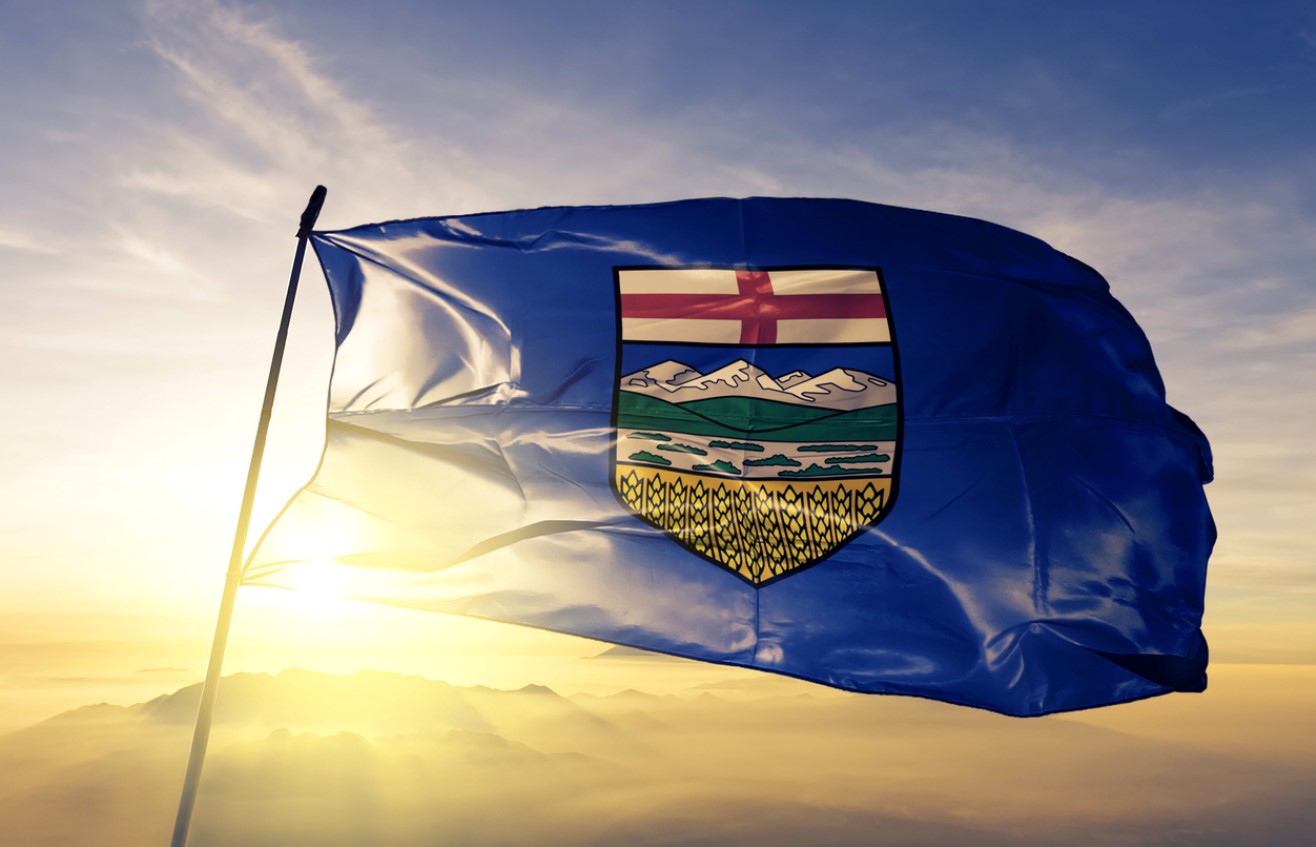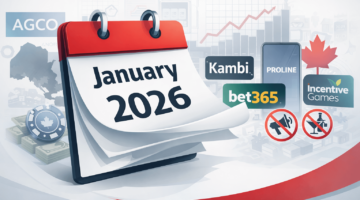Alberta Gears Up to Launch a Regulated Online Gambling Market in 2026

Alberta, one of Canada’s most economically developed provinces, is set to launch its open online gambling sector in the first quarter of 2026. This move marks a major step in Alberta’s gaming industry, which has lagged behind more developed markets like Ontario’s. However, the path to this launch has proven more complicated than planned.
Initially, Alberta’s authorities aimed to open the sector by the end of 2024 (as we previously reported in this article), but these plans had to be adjusted. The delay was due to a combination of technical and regulatory challenges, as well as shifting economic priorities within the province. Nevertheless, Alberta remains committed to its ambitions, recognizing that a regulated online gambling market could become a vital source of revenue amid economic uncertainty.
The experience of other provinces, such as Ontario and Saskatchewan, demonstrates that a regulated gambling sector can do more than just generate substantial revenue for the budget. It also creates new jobs and helps combat illegal grey-market operators. Alberta appears ready to adopt the best practices from other Canadian regions.
In this article, we will examine the experiences of provinces that have already launched their open online gambling markets, assess Alberta’s readiness for this step, and explore how the situation may develop in the future.
Ontario’s successful model for regulated online gambling
Ontario is undoubtedly the leader in Canada’s regulated online gambling sector. Since launching its open market in April 2022, the province has achieved impressive results. In just two years, the number of licensed operators has reached 50, while the number of legal gambling websites has surpassed 80. This expansion has attracted millions of players and generated record-breaking revenue. However, it also came with some challenges. In a previous article, we discussed the difficulties the province faced along the way.
According to data from iGaming Ontario (iGO) and the Ontario Lottery and Gaming Corp. (OLG), online gambling revenues for the second fiscal year (ending March 31, 2024) reached $3.03 billion. This represents a 32% increase compared to the previous year, when revenues stood at $2.269 billion. This success was largely driven by the migration of grey-market operators into the regulated sector. Experts estimate that approximately 85% of websites that previously accepted bets from Ontario residents without government oversight are now operating legally.

The economic impact of online gambling in Ontario is also significant. The industry has created approximately 12,000 full-time jobs and contributed nearly $1.6 billion to the province’s GDP. Moreover, a 20% tax rate generates hundreds of millions of dollars in annual revenue, making online gambling an essential source of funding for social and infrastructure projects.
Ontario’s experience proves that a regulated gambling sector can not only compete with the grey market but also eliminate it entirely by offering players a safe and controlled environment. This success was made possible by a multi-operator model, allowing private companies to operate under strict government oversight while ensuring a high level of consumer protection.
Online gambling in Saskatchewan: a restrained but secure approach
Saskatchewan has taken a more conservative approach to online gambling. Instead of creating a multi-operator system, the province partnered with the British Columbia Lottery Corporation (BCLC) to launch the PlayNow.com platform. The first results, published in the summer of 2024, revealed that in its first full fiscal year (April 2023 – March 2024), the platform handled $503 million in bets, generating $19.1 million in gross revenue.
While these figures exceeded initial projections, they pale in comparison to Ontario’s success. PlayNow.com has undoubtedly fulfilled its primary mission – providing Saskatchewan residents with a safe and regulated alternative to the grey market. However, as experts point out, the province is missing out on a significant portion of potential revenue by not adopting a more progressive model like Ontario’s.

A key challenge for Saskatchewan is its cautious approach to adaptation. Instead of integrating with iGaming Ontario’s infrastructure, the province continues to rely on the limited PlayNow.com platform. While this decision was easy to implement, it does not allow Saskatchewan to compete with major offshore operators that have already earned the trust of local players. Estimates suggest that if the province partnered with iGaming Ontario, its revenues could rise to $47 million per year – more than double the current figures.
Moreover, Saskatchewan’s approach fails to account for the realities of the modern market. Tens of thousands of the province’s residents already have accounts with operators licensed under Ontario’s regulated sector. Attracting these players to Saskatchewan’s regulated platform could significantly boost provincial revenue with relatively little investment. However, for now, local authorities prefer to remain within their comfort zone, limiting themselves to a collaboration with BCLC.
Alberta’s ambitious plans for online gambling
Unlike Saskatchewan, Alberta is showing a willingness to take a more progressive approach to online gambling. The province is actively studying the experiences of other regions to avoid their mistakes and maximize potential benefits. Given Ontario’s success, Alberta will likely adopt a multi-operator model, which has already proven its effectiveness.
Alberta, with a population of approximately 5 million, has a significant market potential. While its population is only a third of Ontario’s, replicating even a portion of Ontario’s success could generate substantial revenue, potentially reaching around $1 billion. With a 20% tax rate similar to Ontario’s, this could generate an additional $200 million in annual revenue for the province. For a region navigating economic fluctuations due to a trade war with the USA, a regulated online gambling market could serve as an important source of revenue stability.
Additionally, Alberta is already taking steps to protect its economic interests on the international stage. For example, the Alberta Gaming, Liquor, and Cannabis Commission (AGLC) has banned the purchase of video lottery terminals (VLTs) from U.S. suppliers. While largely symbolic, this move demonstrates the province’s willingness to defend its interests and seek alternative revenue sources.
The experiences of Ontario and Saskatchewan highlight that the success of regulated online gambling depends not only on the number of operators but also on the ability to attract players from the grey market. Alberta appears ready to take on this challenge. The province has already expressed its intent to create a competitive environment that will attract both local and international operators. This will not only boost revenue but also provide players with a higher level of protection – one of the key goals of a regulated sector.
What to expect from Alberta’s online gambling market
Overall, the launch of Alberta’s open online gambling sector in 2026 will be a significant step not only for the province but for Canada as a whole. The experiences of Ontario and Saskatchewan show that a regulated market can generate substantial economic benefits. Alberta seems determined to build a competitive and profitable industry. However, the road to success will not be easy. The province will need to address multiple challenges, including attracting operators. Nevertheless, Alberta’s proactive approach and its willingness to learn from other regions position it as a strong contender in Canada’s evolving online gambling landscape.
We will continue to monitor developments closely. Will Alberta replicate Ontario’s success? Will it attract enough operators and players to meet its revenue targets? And how will this impact other provinces that have yet to embrace progressive changes? The answers to these questions will become clear in the coming years, but one thing is certain: Alberta is betting on the future, and it looks like a promising wager.
Relevant news

What’s Holding Quebec Back From a Competitive Betting Market?
While 73% of Quebec residents play on offshore sites, the province loses more than $300…

Why Canadian Bettors Prefer Bet365 and Other Key Habits
Ahead of one of the most event-packed sports years – with the Winter Olympic Games,…

January 2026 Highlights: Bet365 Partnership and Other Canadian Betting Updates
The beginning of the year is not always rich in news, but that is not…

New Online Sports Betting Standards in Alberta
On January 13, 2026, Alberta Gaming, Liquor and Cannabis (AGLC) published an 85-page document titled…

The Canadian Bettor’s Calendar for 2026
2026 is set to be a busy year for sports betting fans. The main feature…

Canadian Online Betting in 2025: Key Developments of the Year
The year 2025 marked a turning point for Canada's online betting industry. The market continues…
